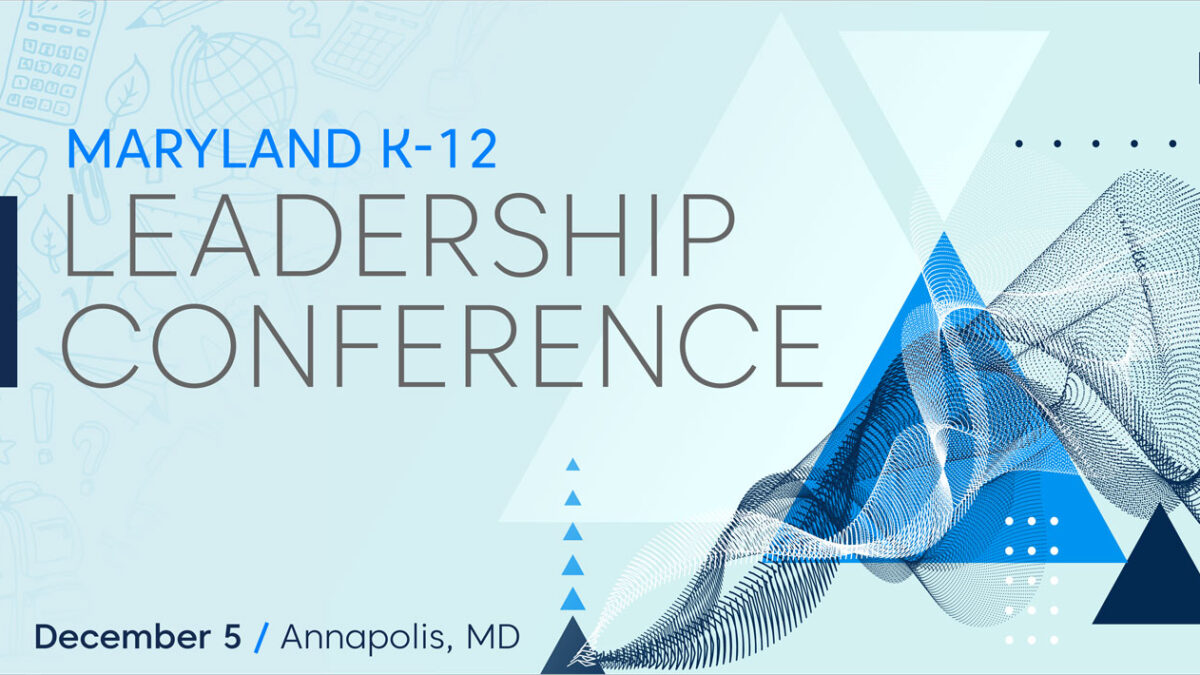
Phishing tactics, the top trends of 2024
October 22, 2024
One year to go before end of life for Windows 10.
October 22, 2024Overview
This one-day Leadership Conference brings together education leaders, administrators, policymakers, and technology experts from across the state to explore the transformative potential of AI in the K-12 learning environment. The event will feature keynote speeches, panel discussions, workshops, and networking opportunities, focusing on the latest trends, best practices, and innovative strategies to leverage AI for enhancing teaching, learning, and administration in schools.
Objectives:
• Understanding AI in Education: Explore the fundamentals of AI and its applications in educational settings. Gain insights into how AI technologies such as machine learning, natural language processing, and data analytics can revolutionize teaching, learning, and administrative processes.
• Best Practices: Learn from real-world examples of successful AI implementations in educational institutions. Discover best practices, lessons learned, and practical strategies for integrating AI tools and solutions effectively.
• Ethical and Social Implications: Discuss the ethical, privacy, and security considerations associated with AI in education. Examine the potential societal impact of AI technologies on students, educators, and educational systems, and explore strategies for ensuring equity, fairness, and transparency in AI-driven educational environments.
• Empowering Educators: Equip educational leaders with the knowledge, skills, and resources needed to harness the power of AI effectively. Provide professional development opportunities, training sessions, and resources to help educators leverage AI tools to personalize learning, improve outcomes, and enhance student engagement.
• Policy and Governance: Address policy challenges and regulatory frameworks related to AI in education. Foster dialogue among policymakers, education leaders, and industry stakeholders to develop guidelines, standards, and policies that promote responsible AI adoption and innovation while safeguarding student privacy and data security.
• Collaboration and Networking: Facilitate collaboration, networking, and knowledge sharing among education leaders, administrators, technology providers, and industry experts. Provide opportunities for participants to exchange ideas, forge partnerships, and explore potential collaborations to advance the use of AI in education.
Who Should Attend:
Superintendents/CEO, Chief Information Officers, Chief Academic Officers and other executive cabinet level members selected by the Superintendent.
Why Attend:
• Local and Sized Right: Free to attend if you work in K-12. The Summit is designed to be intimate and collaborative with up to 75 invited attendees. The local venue eliminates long and costly travel outside the state.
• Expert Panels: Engage with thought leaders and experts in discussions on the latest trends, challenges, and opportunities in K-12 IT.
• Networking Opportunities: Connect with peers from various institutions and industry, share experiences, and build partnerships that extend beyond the conference.
Source: Overview
This one-day Leadership Conference brings together education leaders, administrators, policymakers, and technology experts from across the state to explore the transformative potential of AI in the K-12 learning environment. The event will feature keynote speeches, panel discussions, workshops, and networking opportunities, focusing on the latest trends, best practices, and innovative strategies to leverage AI for enhancing teaching, learning, and administration in schools.
Objectives:
• Understanding AI in Education: Explore the fundamentals of AI and its applications in educational settings. Gain insights into how AI technologies such as machine learning, natural language processing, and data analytics can revolutionize teaching, learning, and administrative processes.
• Best Practices: Learn from real-world examples of successful AI implementations in educational institutions. Discover best practices, lessons learned, and practical strategies for integrating AI tools and solutions effectively.
• Ethical and Social Implications: Discuss the ethical, privacy, and security considerations associated with AI in education. Examine the potential societal impact of AI technologies on students, educators, and educational systems, and explore strategies for ensuring equity, fairness, and transparency in AI-driven educational environments.
• Empowering Educators: Equip educational leaders with the knowledge, skills, and resources needed to harness the power of AI effectively. Provide professional development opportunities, training sessions, and resources to help educators leverage AI tools to personalize learning, improve outcomes, and enhance student engagement.
• Policy and Governance: Address policy challenges and regulatory frameworks related to AI in education. Foster dialogue among policymakers, education leaders, and industry stakeholders to develop guidelines, standards, and policies that promote responsible AI adoption and innovation while safeguarding student privacy and data security.
• Collaboration and Networking: Facilitate collaboration, networking, and knowledge sharing among education leaders, administrators, technology providers, and industry experts. Provide opportunities for participants to exchange ideas, forge partnerships, and explore potential collaborations to advance the use of AI in education.
Who Should Attend:
Superintendents/CEO, Chief Information Officers, Chief Academic Officers and other executive cabinet level members selected by the Superintendent.
Why Attend:
• Local and Sized Right: Free to attend if you work in K-12. The Summit is designed to be intimate and collaborative with up to 75 invited attendees. The local venue eliminates long and costly travel outside the state.
• Expert Panels: Engage with thought leaders and experts in discussions on the latest trends, challenges, and opportunities in K-12 IT.
• Networking Opportunities: Connect with peers from various institutions and industry, share experiences, and build partnerships that extend beyond the conference.
Source: https://events.govtech.com/Maryland-K-12-AI-Leadership-Conference




